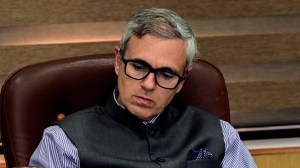Chavez decree obliges citizens to spy on each other
President Hugo Chávez has used his decree powers to carry out a major overhaul of this country’s intelligence agencies...

President Hugo Chávez has used his decree powers to carry out a major overhaul of this country’s intelligence agencies, provoking a fierce backlash here from human rights groups and legal scholars who say the measures will force citizens to inform on one another to avoid prison terms.
Under the new intelligence law, which took effect last week, Venezuela’s two main intelligence services, the DISIP secret police and the DIM military intelligence agency, will be replaced with new agencies, the General Intelligence Office and General Counterintelligence Office, under the control of Chávez.
The new law requires people in the country to comply with requests to assist the agencies, secret police or community activist groups loyal to Chávez. Refusal can result in prison terms of two to four years for most people and four to six years for government employees. “We are before a set of measures that are a threat to all of us,” said Blanca Rosa Mármol de León, a justice on Venezuela’s top court, in a rare public judicial dissent. “I have an obligation to say this, as a citizen and a judge. This is a step toward the creation of a society of informers.”
The sweeping intelligence changes reflect an effort by Chávez to assert greater control over public institutions in the face of political challenges following a stinging defeat in December of a package of constitutional changes that would have expanded his powers.
On Sunday, Chávez referred to critics of the intelligence law as de facto supporters of the Bush administration and of the Patriot Act, the American antiterrorism law that enhances the ability of security agencies to monitor personal telephone and e-mail communications.
But the new law may also point to the influence of Cuba, Venezuela’s top ally, on intelligence policies.
On Monday, however, Rodríguez Chacín softened his tone, saying the law would not lead to political intimidation or restrict freedom of expression.







- 01
- 02
- 03
- 04
- 05
























